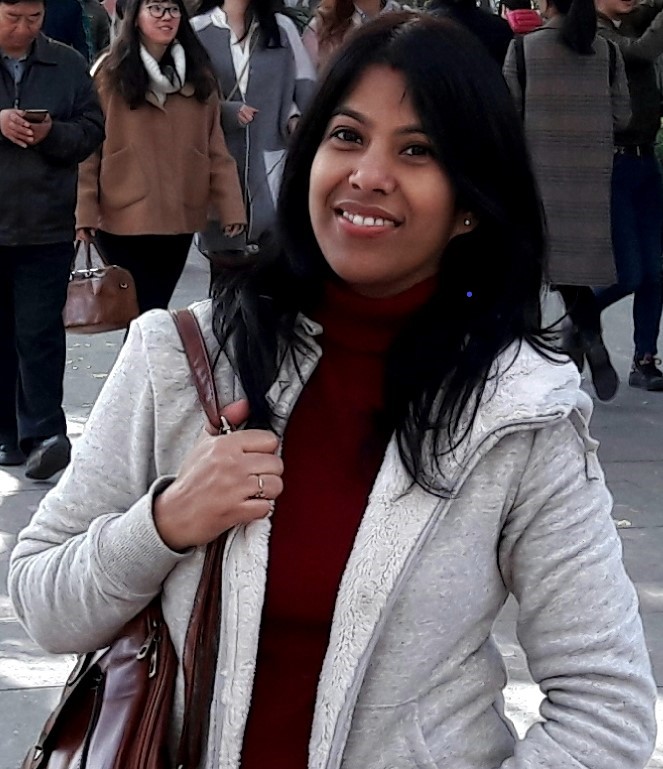Plant Biotechnology
Course Attendees
Still no participant
Course Reviews
Still no reviews
Code(Credit) : CUTM1439(3-1-0)
Course Objectives
•To understand the basics principles of plant sciences and molecular biology and their integration towards trait improvement in plants.
•To have a thorough knowledge of laboratory techniques used in plant biotechnology.
•To understand the industrial applications of biotechnology in developing new products.
•To undertake research in plant biotechnology.
Learning Outcomes
•The students will understand the concepts and techniques of plant biotechnology and their applications in crop plants.
•They can get job opportunities in agribusiness, private companies, industries, universities and research laboratories.
•They can pursue higher studies and research in the field of plant biotechnology.
Course Syllabus
Module I: Basics of Tissue Culture
History, scope, concept of cellular differentiation and Totipotency, Cell culture media and sterilization techniques, Callus culture, nodal and tip culture, Protoplast and Embryo culture, Embryo culture and embryo rescue, protoplast isolation, culture and plant regeneration
Practice: 1. Preparation of tissue culture media
2. Direct Organogenesis: Shoot tip culture
Module II: Applications of Plant Tissue Culture
Somatic embryogenesis, Somaclonal variation and crop improvement, Germplasm conservation, Production of Secondary metabolites through Tissue culture, Industrial applications.
Practice: Micropogation techniques
Module III: Recombinant DNA technology
Genomic DNA & plasmid DNA isolation and purification, construction of
recombinant DNA and expression cassettes, Transformation (mobilization of vectors into competent bacteria), selection and analysis of recombinant clones, genomic DNA and cDNA libraries.
Practice: DNA isolation and purification
Module IV: Genetic Engineering in Plants
Vector mediated Gene transfer, Molecular basis of crown gall and hairy root diseases, features of Ti and Ri plasmids, mechanism of T-DNA transfer, role of virulence genes, vectors based on PTi & PRi, binary and co-integrate vectors, optimized protocols for Agrobacterium-mediated genetic transformation, physical and chemical methods of gene transfer.
Practice: 1. Callus induction
2. Agrobacterium mediated gene transfer in plants
Module V: Methods of Gene transfer in plants
Direct gene transfer methods (particle bombardment/ micro projectile / biolistic, electroporation, microinjection, liposome mediated, silicon carbide fibers), chemical methods (PEG - mediated, calcium phosphate co-precipitation), transgenic monocots and dicots via direct gene transfer, in plant transformation. Integration and fate of transgene, precision of transgene integration by site-specific.
Module VI: Applications of Genetic Engineering
Transgenic plants for disease resistance, nutritional improvement, herbicide tolerance,
Long shelf life, edible vaccines.
Module VII: Gene silencing in plants
Antisense RNA technology: Antisense RNA, construction of antisense vectors, applications of antisense technology. Gene silencing: causes (DNA methylation, homology-dependent suppression by antisense gene), strategies for avoiding gene silencing, methods of inducing gene silencing and its application. Regulatory RNA molecules (si RNA and miRNA), RNAi technology and its applications in plants.
Text books:
Glick, B. R. and Pasternak (2003). Molecular Biotechnology: Principles and Applications of Recombinant DNA. ASM Press, Washington, D. C., USA.
Kyte, L. and Kleyn, J. (1996). Plants from Test Tube to: an Introduction to Micro propagation, 3rd Ed. Timber press, Port land, USA.
Reference Book
Pollard, W. J. and Walker (1990).Plant Cell and Tissue Culture Vol VI. Humana press Clifton, USA.
Session Plan
Session 1
Cellular differentiation & Totipotency
https://www.youtube.com/watch?v=yxj5nnzhBMg
Session 2
Tissue culture media and sterilization techniques
https://www.youtube.com/watch?v=ykKs5icYwq0
Session 7
Practice
Micropropagation techniques
https://www.youtube.com/watch?v=LAx2h9CeaBs
https://www.youtube.com/watch?v=byydnVwzrc8
Session 9
Practice
Callus induction and Growth measurement
https://www.youtube.com/watch?v=uzuZF2pnXbs
https://www.youtube.com/watch?v=J0sdmced1dA
Session 13
Production of secondary metabolites through tissue culture
https://www.youtube.com/watch?v=lTHb33TMmNA
Session 14
Industrial applications of tissue culture
https://www.youtube.com/watch?v=x-JcIQ2RGvI&t=3s
Session 15
Plasmids, vectors and enzymes used in genetic engineering
https://www.youtube.com/watch?v=GNMJBMtKKWU
https://www.youtube.com/watch?v=Ik_Pxht1LM0
Session 16
Vector construction, transformation and selection of expression cassettes
https://www.youtube.com/watch?v=KRpik9mNRm0&t=8s
Session 17
Genomic DNA and plasmid DNA isolation and purification
https://www.youtube.com/watch?v=8cYvyYOjzOc
Session 18
Practice
DNA isolation and purification
https://www.youtube.com/watch?v=W5PsDSdudrI
https://www.youtube.com/watch?v=ukZp6Adu534&t=32s
Session 19
Genomic library and cDNA library, screening of libraries.
https://www.youtube.com/watch?v=VvusmIcA6i0&t=10s
Session 20
Plant Transformation-Introduction
https://www.youtube.com/watch?v=yesNHd9h8k0
https://www.youtube.com/watch?v=K1ZyzvsHhOE
Session 21
Molecular basis of crown gall and hairy root diseases
https://www.youtube.com/watch?v=L7qnY_GqytM
Session 22
Ti and Ri Plasmids, vir genes, mechanisim of T-DNA transfer
https://www.youtube.com/watch?v=LUNL9HXvPXY
Session 23
vectors based on PTi & PRi, binary and co-integrate vectors
https://www.youtube.com/watch?v=1rSWOSt3wVQ
Session 24
Practice
Agrobacterium mediated gene transfer in plants
https://www.youtube.com/watch?v=GHc7PU_jG2M
Session 25
Chemical methods (PEG - mediated, calcium phosphate co-precipitation)
https://www.youtube.com/watch?v=qx72xt0utm4
Session 26
Physical methods of gene transfer, Biolistic, microinjection, electroporation
https://www.youtube.com/watch?v=HeRgUAlH5hM
https://www.youtube.com/watch?v=VqklR_8YRfA&t=29s
https://www.youtube.com/watch?v=ulA8xsVji80
Session 27
Reporter genes, selection markers, fate of transgenes
https://www.youtube.com/watch?v=PD_6JU3NayE
Session 29
Applications of genetic engineering in medicine
https://www.youtube.com/watch?v=HZmZ161njr8
https://www.youtube.com/watch?v=glt8iAqK8NQ&t=46s
Session 30
Applications of genetic engineering in agriculture
https://www.youtube.com/watch?v=zcTNmCUMZ7c
https://www.youtube.com/watch?v=S36aE9_m_Xo
Session 31
Applications of genetic engineering in industry
https://www.youtube.com/watch?v=n3fZRWMOZrw
Session 32
Applications of genetic engineering in enviromental waste mangement
https://www.youtube.com/watch?v=8ZXRDovD5MQ
Session 34
Antisense RNA technology, antisense vectors, applications
https://www.youtube.com/watch?v=dNWpM7a23Cw
Session 35
RNAi Technology, si RNA , miRNA
https://www.youtube.com/watch?v=cK-OGB1_ELE
https://www.youtube.com/watch?v=5YsTW5i0Xro
Session 36
T-DNA Tagging, Transposon Tagging, Applications of RNAi technology in plants
https://www.youtube.com/watch?v=eSD_tbjfSlA
Case Studies
Case Studies
Our Main Teachers

Dr Rukmini Mishra is presently working as an Assistant Professor (Botany), School of Applied Science, Centurion University of Technology and Management. She has a PhD in Agricultural Biotechnology from ICAR-National Rice Research Institute, India. After PhD, she received the prestigious Young Scientist Award from the Dept. of Science & Technology, SERB, Govt. of India to […]


Recent Comments